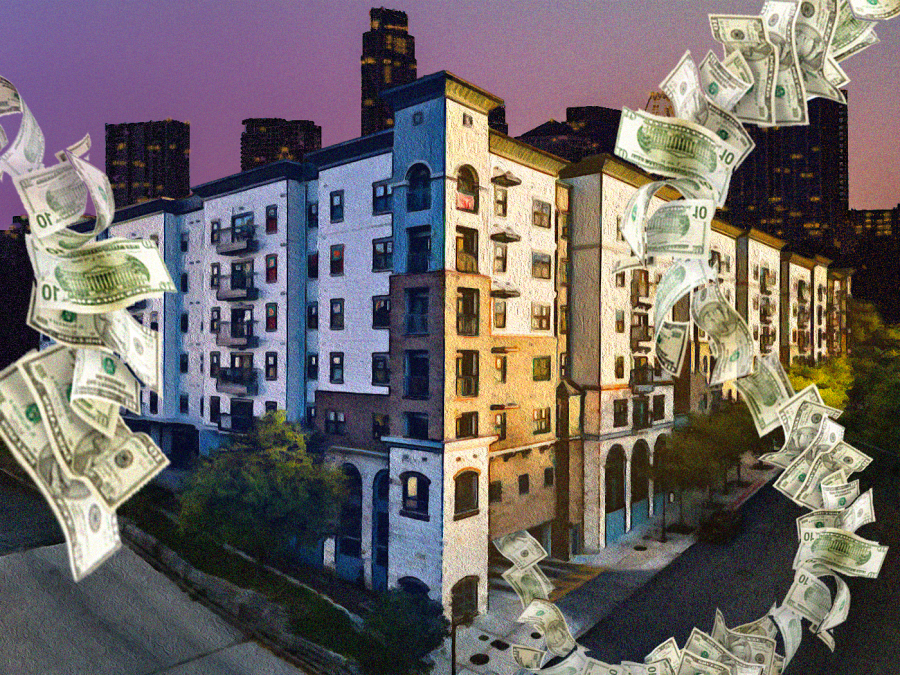Students, vote for Prop A in November
October 14, 2022
In less than a month, Austinites will have the opportunity to approve the largest affordable housing bond in Austin’s history, Prop A.
Austin is the seventh-least affordable metropolitan area in the country, according to the Austin Community Foundation housing report. This issue affects the city’s individuals, families and potential economic growth, according to the report. Prop A would increase the supply of affordable housing in the city.
The choices UT students make when voting for bonds like Prop A will have long-lasting effects on their futures. Students should vote for Prop A on the November ballot, as the city’s future depends on investments like these.
Students should make an effort to understand the significance of Prop A by the time early voting starts on Oct. 24.
“I will say, I haven’t heard much about it from the voting resources around campus,” biology sophomore Aria Welch said. “But I would vote for it because I do think housing is a big issue in Austin.”
Luckily, Prop A is a fairly simple bond to understand.
“It is essentially an investment in affordable housing for Austinites who might otherwise have very little chance of being able to live in the city,” said Greg Anderson, director of community affairs for Austin Habitat for Humanity.
According to previews of the ballot, the city will issue $350 million for the planning, construction and renovation of affordable housing facilities for low- and moderate-income families, along with funding more affordable housing loans and programs.
Natasha Harper-Madison, a member of Austin City Council, reminds students that even if they don’t plan to stay in Austin after graduating, Texas is not a housing bubble.
“I think people really underestimate the power that is the juggernaut of Texas,” Harper-Madison said. “When we make textbook decisions in Texas, (other nearby states) make the same types of decisions we make. … We dictate the market. So when housing goes upside down in Texas, housing goes upside down nationally.”
Even though students may not be looking to own a home now, they likely will down the road.
“Unless college students intend to just stop aging, they will soon be the people who are looking for a place to live — one that is affordable and accessible,” Harper-Madison said.
”The decisions I make in office today will absolutely affect my son and his family’s ability to choose to remain in Austin.”
Additionally, Anderson said that the bond will help maintain a “complete community” by helping people forced to the outskirts of Austin due to unaffordability in moving to the city.
“We all benefit from having our essential workforce, the people we rely on every day, from teachers to pharmacists, waiters, bus drivers, firefighters. … Having them live in our community is much better than forcing them out from a lack of affordability,” Anderson said.
In order to help Austin be an inclusive, diverse and sustainable community, more work still needs to be done. Anderson said the bond is not the final solution.
“We definitely still need land use and zoning reform,” Anderson said.
Austin’s present land development code, which was adopted in 1984, is extremely outdated.
“We built very differently back then,” Anderson said. “We didn’t build for sustainability; we built for sprawl. We need a modern code to legalize the types of housing that UT students want the day they graduate, and even now while they’re still at school.”
While Prop A may not be the ultimate solution for the housing crisis, it would certainly push Austin closer to becoming the city Austinites want it to be.
“I really want to remind and encourage people to get involved and to participate,” Harper-Madison said. “In my experience, the people who get what they want get it because they showed up.”
Students, let’s show up for Prop A in November.
Garderet is a Plan II and urban studies sophomore from Dallas, Texas.



